No products in the cart.
Sale
Melflufen (Melphalan flufenamide) – Product Information Slug
Original price was: $28.00.$23.00Current price is: $23.00.
Melflufen (CAS No. 380449-51-4) is a dipeptide prodrug of melphalan with antitumor properties. It shows strong cytotoxicity against multiple myeloma cells, inhibits angiogenesis, and induces irreversible DNA damage.
Description
Product Description
Melflufen, also known as Melphalan flufenamide, is a synthetic dipeptide prodrug engineered to enhance the intracellular delivery of the alkylating agent melphalan. It represents an innovative approach in oncology research by leveraging tumor-associated aminopeptidases for selective activation. The prodrug design increases lipophilicity, allowing rapid penetration into tumor cells, where enzymatic hydrolysis releases the cytotoxic melphalan. This targeted delivery enhances antitumor efficacy while potentially minimizing systemic toxicity.
The compound has demonstrated potent cytotoxicity in multiple myeloma (MM) cells in preclinical studies, causing irreversible DNA crosslinking, leading to apoptosis. Melflufen’s antiangiogenic properties inhibit new blood vessel formation within the tumor microenvironment, thereby restricting nutrient supply to malignant cells and contributing to tumor growth suppression. Its dual mechanism—direct DNA damage and angiogenesis inhibition—renders it a highly effective research tool for oncology models.
Pharmacologically, Melflufen retains comparable activity in both its free base and hydrochloride salt forms, though the hydrochloride variant exhibits enhanced solubility and stability, facilitating laboratory handling and solution preparation. This flexibility allows researchers to select the formulation most compatible with their experimental design, whether in vitro cell culture studies or in vivo animal models.
Preclinical studies have revealed several advantages of Melflufen over traditional melphalan. First, the prodrug is selectively activated within tumor cells due to high aminopeptidase activity, increasing intracellular melphalan concentration and promoting potent cytotoxicity. Second, it demonstrates a broader spectrum of antitumor effects, including apoptosis induction, cell cycle arrest, and antiangiogenic activity. Third, Melflufen retains efficacy in melphalan-resistant tumor lines, suggesting utility in studies of chemoresistance mechanisms.
In addition to multiple myeloma research, Melflufen serves as a valuable tool for investigating general mechanisms of tumor biology, DNA damage response, and angiogenesis modulation. Researchers can use it to explore the interplay between alkylating agents and tumor microenvironment, study DNA repair pathways, and model drug resistance in preclinical oncology studies.
Melflufen is supplied as a GMP-grade peptide, ensuring high purity, reproducibility, and structural integrity across batches. This standardization is essential for high-quality preclinical experiments and mechanistic studies. The lyophilized powder form is stable under recommended storage conditions (-20°C), allowing for long-term experimentation and consistent results across multiple assays and research models.
In mechanistic studies, Melflufen has been used to dissect aminopeptidase-mediated prodrug activation pathways, the kinetics of intracellular drug release, and downstream apoptotic signaling in tumor cells. Its design allows researchers to investigate selective tumor targeting strategies, optimize dosage regimens, and explore combinatory treatments with other cytotoxic or targeted agents.
Additionally, Melflufen facilitates studies on angiogenesis inhibition and tumor vasculature remodeling. By blocking neovascularization, it creates experimental models to study hypoxia, nutrient deprivation, and tumor adaptation to microenvironmental stress. Researchers can also examine synergistic interactions with antiangiogenic agents, immunotherapies, or other peptide-based cytotoxins.
Overall, Melflufen exemplifies a next-generation peptide–drug conjugate designed for targeted delivery, potent cytotoxicity, and versatile research applications in oncology, particularly in multiple myeloma and chemoresistance studies. Its dual mechanism—direct DNA alkylation and antiangiogenic activity—makes it a unique and valuable tool for mechanistic and translational research.
Product Specifications
| Parameter | Details |
|---|---|
| Product Name | Melflufen |
| Synonyms | Melphalan flufenamide, J1, E-0702 |
| CAS Number | 380449-51-4 |
| Molecular Formula | C18H23Cl2F2N3O5 |
| Molecular Weight | 470.30 g/mol |
| Appearance | White to off-white lyophilized powder |
| Purity | ≥98% (HPLC) |
| Solubility | Soluble in DMSO, ethanol, and dilute acid solutions |
| Stability | ≥24 months in lyophilized form |
| Storage Conditions | Store at -20°C, protected from light and moisture; avoid repeated freeze-thaw cycles |
| GMP Compliance | Manufactured in GMP-certified facility |
| Applications | Oncology research, multiple myeloma studies, angiogenesis inhibition research, DNA damage response studies |
| Availability | Wholesale & retail |
| Experimental Models | In vitro MM cell lines, in vivo MM xenografts, chemoresistant tumor models |
| Safety Considerations | Handle under standard laboratory precautions; research-use only |
Melflufen’s specifications emphasize reproducibility, purity, and compatibility with a range of experimental models. The high purity ensures consistent biological activity, while GMP-grade production maintains structural integrity across batches. Its solubility profile supports various laboratory assays, including cell culture, cytotoxicity studies, and in vivo dosing.
Researchers can explore dose–response relationships, evaluate combinatory therapy effects, and assess pharmacodynamic outcomes using Melflufen’s standardized formulation. Its stability under recommended storage conditions ensures reliable results over extended experimental periods, crucial for longitudinal studies and multi-phase research projects.
Mechanism of Action & Research Applications
Melflufen acts primarily as a dipeptide prodrug of melphalan, designed to exploit enzymatic activity within tumor cells for selective activation. The prodrug’s lipophilic structure facilitates rapid cellular uptake. Upon entry, intracellular aminopeptidases cleave Melflufen, releasing melphalan, which subsequently exerts cytotoxic effects.
DNA Alkylation and Apoptosis:
Melphalan covalently binds DNA, causing interstrand crosslinks that disrupt replication and transcription. This leads to activation of apoptotic pathways, including the intrinsic mitochondrial pathway and caspase cascades. The result is irreversible tumor cell death, making Melflufen a powerful research tool for studying DNA damage responses and apoptotic mechanisms.
Antiangiogenic Activity:
Beyond DNA damage, Melflufen inhibits angiogenesis, reducing nutrient and oxygen supply to tumors. Preclinical models demonstrate decreased tumor microvessel density upon treatment, making it suitable for studies on tumor vascularization, hypoxia adaptation, and combinatory antiangiogenic strategies.
Selective Tumor Targeting:
The reliance on aminopeptidase-mediated activation ensures preferential drug release within malignant cells. This feature allows researchers to model selective cytotoxicity and explore enzyme-targeted prodrug strategies.
Applications in Oncology Research:
Multiple myeloma studies: Evaluate cytotoxicity, apoptosis induction, and tumor regression.
Drug resistance modeling: Assess efficacy in melphalan-resistant tumor lines.
Angiogenesis research: Investigate inhibition of tumor vasculature.
DNA repair and cell cycle studies: Explore crosslink repair mechanisms and checkpoint responses.
Combination therapy: Test synergy with other chemotherapeutics, targeted agents, or immunotherapies.
Translational Research Value:
Melflufen offers insights into prodrug activation, tumor-selective delivery, and mechanisms of chemotherapeutic resistance. Its dual action supports preclinical studies aimed at designing next-generation peptide–drug conjugates and personalized oncology interventions.

Side Effects (For Reference in Research Models)
In preclinical studies, exposure to Melflufen has been associated with several predictable cytotoxic and systemic effects consistent with alkylating agents:
Myelosuppression: Dose-dependent reduction in bone marrow function, leading to decreased neutrophils, red blood cells, and platelets.
Gastrointestinal Effects: Nausea, vomiting, and diarrhea observed in animal models at higher doses.
Hepatic Effects: Elevated liver enzymes may occur, reflecting hepatic stress or mild toxicity.
Fatigue and Weight Changes: Experimental animals may exhibit decreased activity or altered weight trajectories.
Injection Site Reactions: Local irritation possible in subcutaneous or intraperitoneal administration.
Immunosuppression: Reduced immune cell counts may predispose to infection in model systems.
Experimental Considerations:
Side effects vary by species, dose, and administration route.
Careful monitoring of hematologic and biochemical parameters is recommended in in vivo studies.
Proper handling and disposal protocols are necessary to minimize laboratory exposure.
Melflufen provides a robust research tool for exploring tumor biology, chemoresistance, angiogenesis, and apoptosis, while also requiring standard laboratory safety precautions due to its cytotoxic nature.
Disclaimer
For laboratory research use only. Not for human or veterinary use.
Keywords
Melflufen, Melphalan flufenamide, CAS 380449-51-4, peptide-drug conjugate, alkylating agent, multiple myeloma research, DNA alkylation, antiangiogenic peptide, oncology research compound, GMP-grade oncology peptide
Additional information
| Weight | 0.8 kg |
|---|---|
| Dimensions | 53 × 28 × 53 cm |
What is Melflufen?
Melflufen (Melphalan flufenamide) is a dipeptide prodrug of melphalan used for laboratory oncology research.
What is the CAS number of Melflufen?
CAS No. 380449-51-4.
How does Melflufen work?
Melflufen is hydrolyzed by aminopeptidases inside tumor cells, releasing melphalan which alkylates DNA and induces apoptosis.
What research applications is it used for?
Multiple myeloma studies, angiogenesis inhibition, chemoresistance research, DNA damage response studies.
Are the free base and salt forms equally active?
Yes, but the hydrochloride salt is more soluble and stable for laboratory use.
Is Melflufen approved for clinical use?
No, it is strictly for research use only.
How should Melflufen be stored?
Store at -20°C, protected from moisture and light.
Can it overcome melphalan resistance?
Yes, it retains cytotoxicity in melphalan-resistant cells.
What is the molecular formula?
C18H23Cl2F2N3O5.
What safety precautions are recommended?
Use standard laboratory protective equipment and handle under appropriate biosafety conditions.


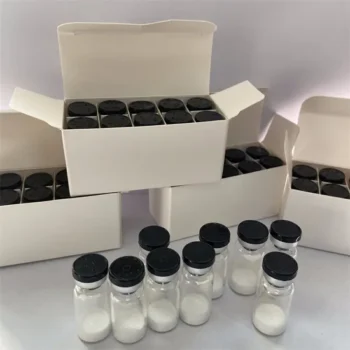
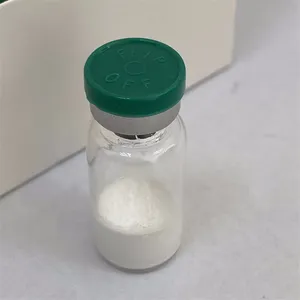
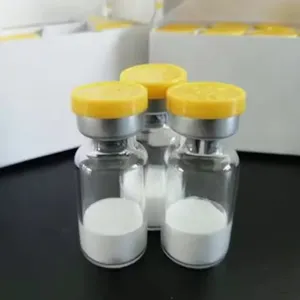
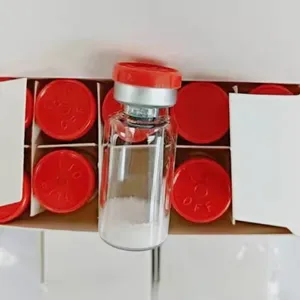
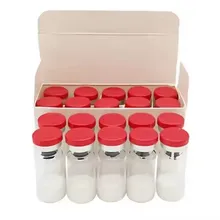
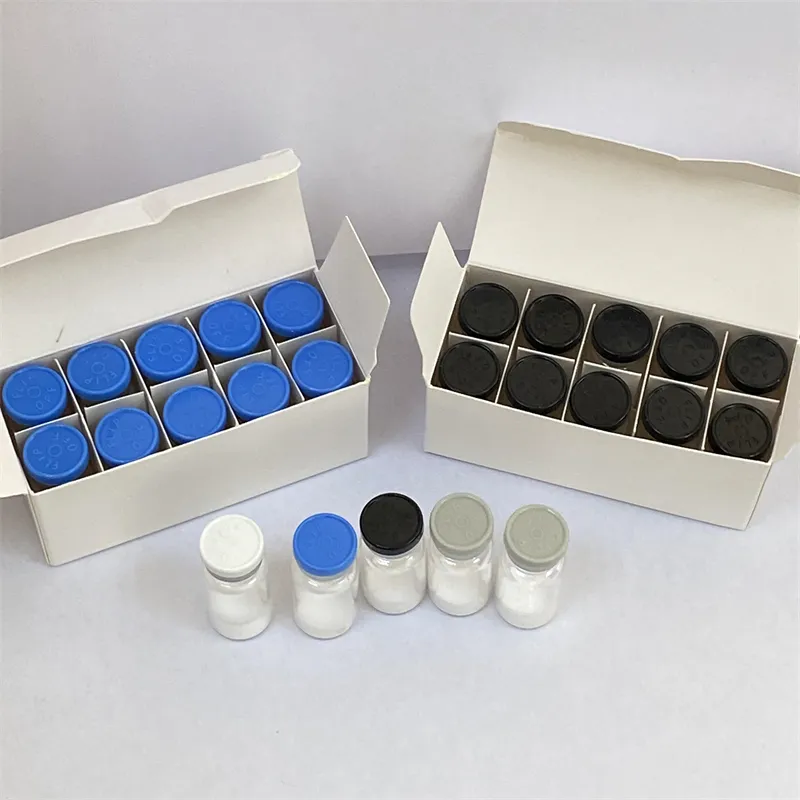
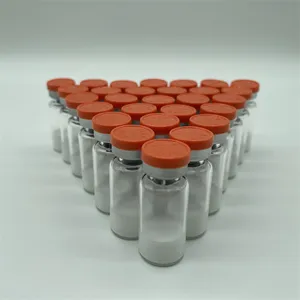
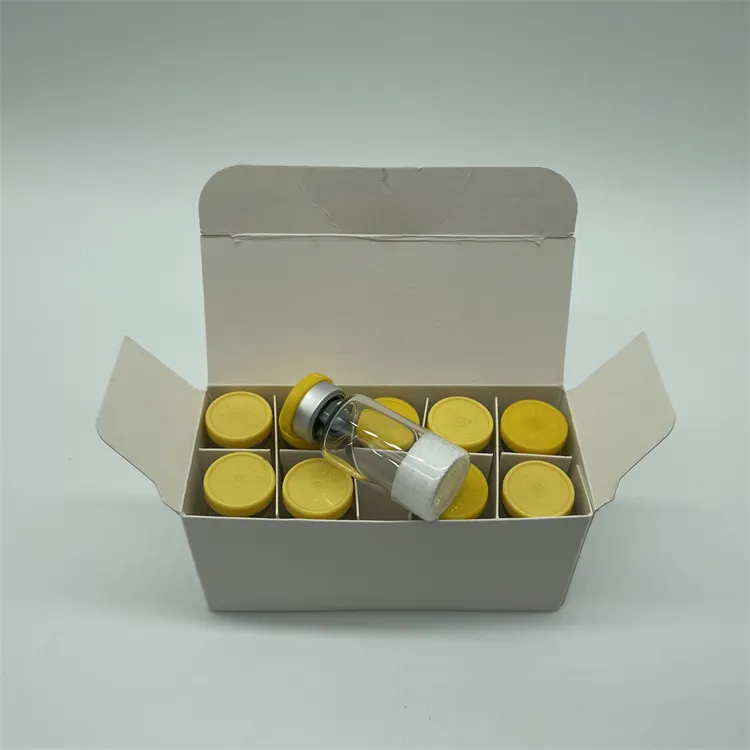
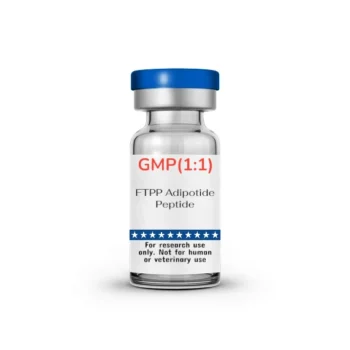
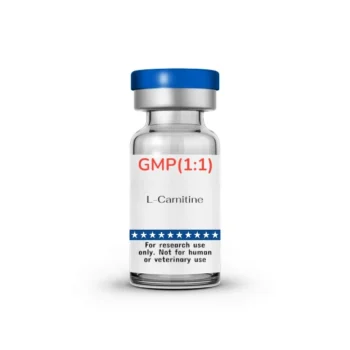
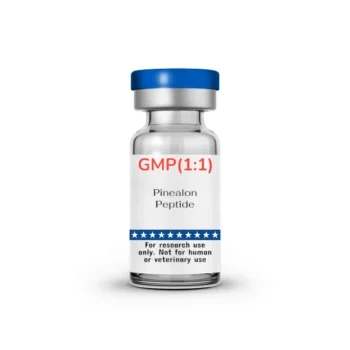


Reviews
There are no reviews yet.